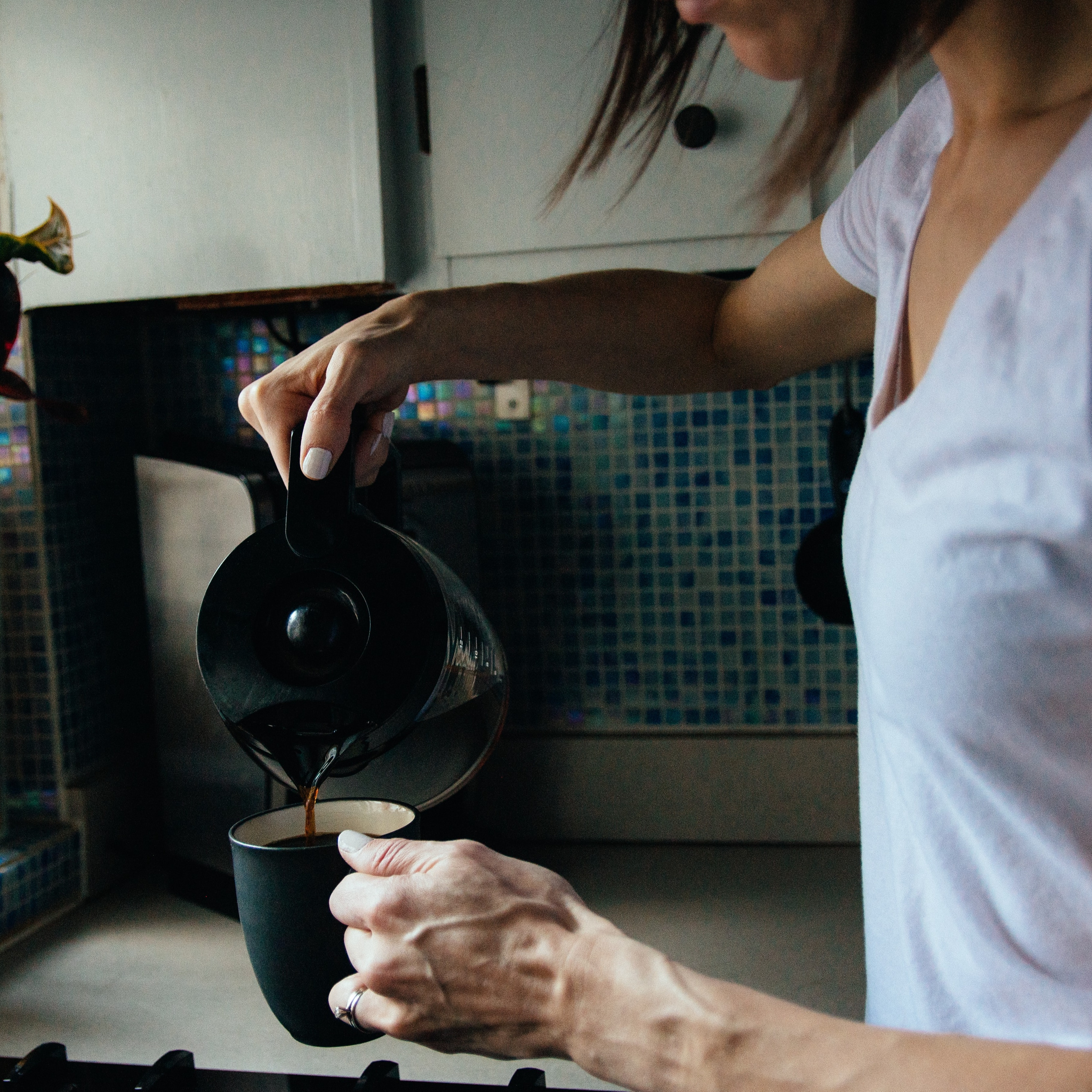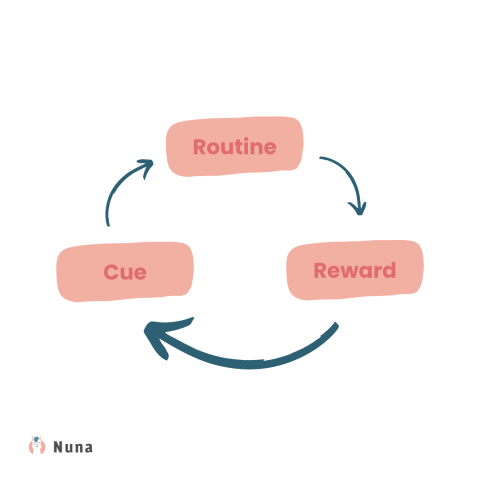
What are habits?
Let's have a look at the actions we perform every day, also called habits. What are they? And why and how do we form habits?
by Emilie Glen Colsted
What are habits?
Habits are automated behavior that we perform in response to certain situations. It’s the things we do almost without thinking about them - e.g. washing hands, tying shoelace, or checking our phone.
Why do we have habits?
Habits allow us to do things without having to think about them. It’s kind of an autopilot mode that saves mental energy so that we don't become overwhelmed by simple tasks and can focus on things that require us to reason, make conscious choices and problem solve.
Actually, around 45 % of what we do on a daily basis is automated in some way. This phenomenon is also called "Automaticity" by psychologists.
But how do habits work?
To help explain this, let’s examine the habit of looking at our phone and the so called Habit Loop by Charles Duhigg:

First, there’s a “Cue”. This is something that triggers the behavior to unfold rather automatically. The cue can be anything that we experience - from a visual stimuli to a feeling.
E.g. we may hear a notification sound on our phone or experience a sense of boredom. These can both trigger the habit of checking our phone.
The second part of the habit loop is the “Routine”. This is the behavior of the habit itself.
E.g. the routine of the habit of checking one's phone can be the actual behavior of reaching out for the phone, reading the notification message and going through different apps.
The last part of habit loop is the “Reward”. This is the effect or the end goal of performing a habit.
E.g. we might feel gratification after checking our phone. It could be in the form of satisfaction by taking a little break from whatever we're doing - or by keeping up to date with things like our mail inbox or social media notifications.
Why does the habit loop repeat itself?
The reward is a big reason for that. Receiving a reward after performing a certain behavior helps the mind associate a cue with a reward. E.g. phone = feel good.
And this motivates us to perform our habits. In other words, the next time we encounter the cue we will then anticipate something pleasant to happen which can trigger the behavior, which again can result in getting a reward.
Over time, with repetition, these steps will become more and more automated. And that’s how a habit will form (also called "habit formation") and loop.
Click here to learn more about how to break an old habit, how to trigger a new habit, and how to implement a new habit with the concept of habit stacking.


